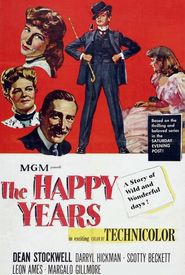Owen Johnson, a renowned American novelist and playwright, was born in the vibrant city of New York in the year 1878. His father, a magazine editor, instilled in him a deep passion for literature, and by the tender age of six, Owen had already published his first story, earning a grand sum of $1.00. As he grew older, his creative endeavors continued to flourish, and at the age of 12, he and a friend co-founded and edited their own newspaper.
Owen's academic pursuits took him to the prestigious Lawrenceville School in New Jersey, where he excelled as a student and founded the "Lawrenceville Literary Magazine." This experience would later serve as the inspiration for many of his novels, with characters based on his schoolmates and friends. He then attended Yale University, where he became the chairman of the "Yale Literary Magazine" and graduated with the class of 1900, receiving his Bachelor of Arts degree in 1901.
Owen's literary career was marked by controversy and scandal, particularly with the publication of his novel "Stover at Yale" in 1910. This provocative work critiqued the pretentiousness and superficiality of the "senior societies" at Yale University and the lack of curiosity and indolence among the younger students. The novel sparked widespread attention and debate, cementing Owen's reputation as a bold and unapologetic writer.
After his graduation, Owen published a novel about the American Civil War, "Arrows of the Almighty," and married his first of five wives. He went on to serve in France during World War I as a member of the US Army, earning the esteemed title of Chevalier of the Legion d'Honneur from the French government.
In the 1920s, Owen settled in New York City with his fifth wife, and it was there that he spent the remainder of his life. He passed away in Tisbury, Massachusetts, in the year 1952, leaving behind a legacy as a pioneering American novelist and playwright.



















